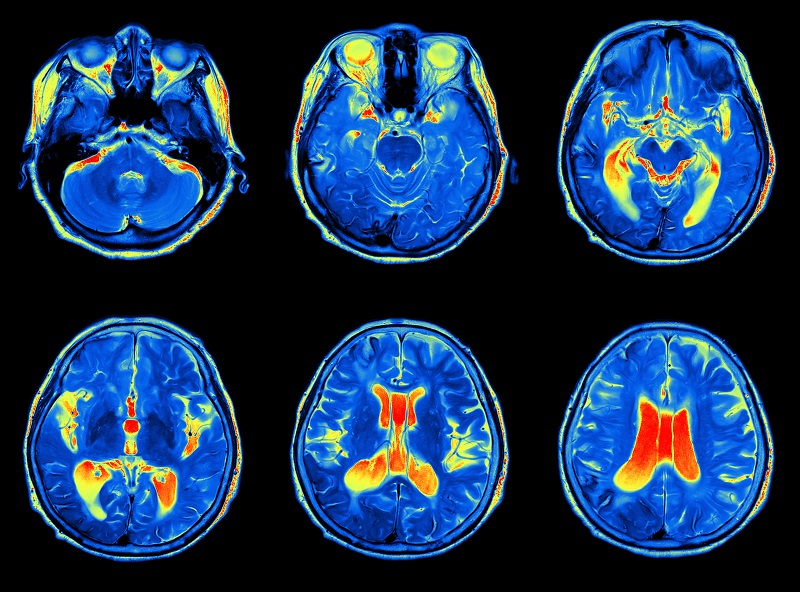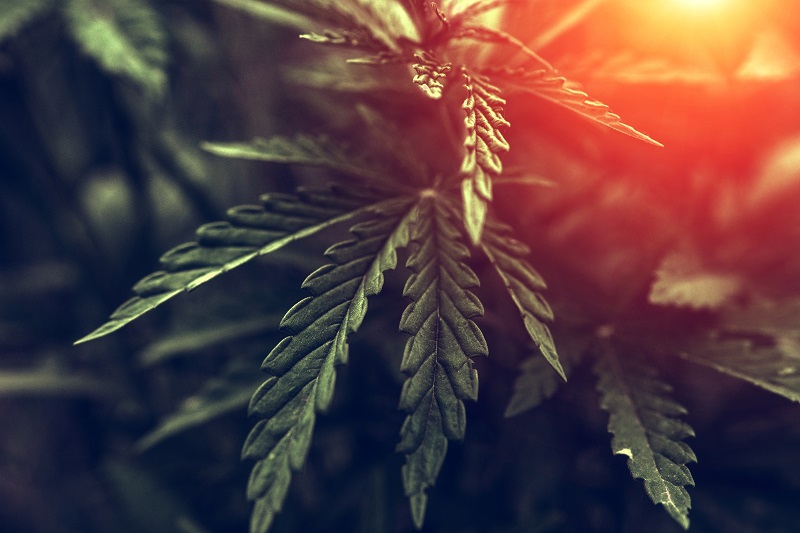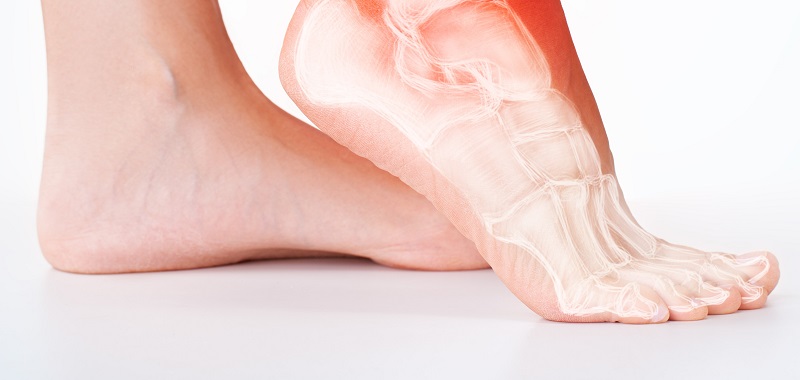Can Cannabis Injectables Provide Relief from Seizure Related Disorders?

CBD-based products have long been debated over by numerous health professionals, biochemists, researchers, scientists, and even policymakers. Their effectiveness has often been considered to be debatable; however, solid and impressive results have been reported time and again by people who have used CBD-based products.
A study published in The Journal of the International League Against Epilepsy suggests that cannabis has been used to treat medical conditions as far back as 2,700 BC. Such evidence and claims have enabled researchers and bioscientists to delve further into the science of cannabis and how it can help people lead healthier, comfortable, and disease-free lives. Over the past decade, these researches have become increasingly prevalent, and the resulting findings and the manufactured CBD-based drugs and products have proven to be quite revolutionary for health sciences.
The hemp plant (scientifically referred to as Cannabis Sativa) is the one under discussion here. CBD or Cannabidiol is extracted from this plant via processing methods, which can then be produced as numerous CBD-based products for medicinal use. These products include pain relief sprays, pain relief roll-ons, CBD body oils, facial serums, face oils, pain relief creams, pain relief oils, anti-acne creams, and more.
CBD-based products for medical conditions
The applications of CBD products for medical conditions include pain and inflammation, anxiety and depression, some symptoms of cancer, acne and other severe skin conditions, high blood pressure, irritable bowel syndrome, and diabetes. A study from Neuropharmacology confirms the effectiveness of CBD for pain and inflammation. Another study published in the European Journal of Pain has not only proven CBD to be effective in dealing with inflammation but also shows that it is highly effective in arthritis patients.
Numerous studies published in Neurotherapeutics and the Journal of the American Society for Experimental NeuroTherapeutics proved the effectiveness of CBD in treating anxiety and depression, along with Obsessive-Compulsive Disorder (OCD), Seasonal Compulsive Disorder, and Post-Traumatic Stress Disorder (PTSD).
With the ever-increasing popularity of CBD products such as pain relief sprays, pain relief roll-ons, CBD body oils, facial serums, and more, CBD or Cannabis Injectables have come into the limelight as well.
CBD for epilepsy and seizure-related disorders
While the usual CBD products have largely focussed on pain, inflammation, anxiety, acne, diabetes, and so on, Cannabis Injectables have been shown to be hugely beneficial for epilepsy and seizure-related disorders.
People who have suffered from Lennox–Gastaut Syndrome (LGS), which is a particular type of epilepsy, are shown to have less number of seizures after being on CBD medication. This study was published in the New England Journal of Medicine. Another study published in Nature Research has again proved the benefits of cannabis extracts in treating childhood epilepsy.
CBD has shown to be so effective in dealing with epilepsy and seizure-related disorders that in 2018, the FDA even approved an oral CBD formulation for the same. Epidiolex is said to be highly effective in people suffering from Lennox–Gastaut Syndrome and Dravet Syndrome. It’s proven to reduce the number of seizures one has not just in a week or a month but also a day.
Before we dive deeper into cannabis injectables to handle this particular purpose, let’s understand a few details about epilepsy and its related disorders.
The fundamentals of Epilepsy
Epilepsy is a non-communicable neurological disease. This medical condition can be developed by anyone and involves symptoms such as unusual behavior, seizures (uncontrollable jerky movements of your muscles, especially in the limbs), staring at one thing continuously, unawareness, and unexplainable sensations.
While epilepsy can happen on its own due to genetic influence, it can also be caused by head trauma, brain conditions such as a stroke or inflammation of your brain tissues and spinal cord, infectious diseases such as meningitis or AIDS, vascular heart conditions, or developmental conditions such as autism. It’s also to be noted here that epilepsy is most commonly found to develop in young children or older adults.
Other risk factors associated with epilepsy
Babies who are born small for their age are at high risk of developing epilepsy. They can also begin to have seizures in the very first month of their life. There are also occurrences where the baby does not get enough oxygen supply during birth. This directly causes the brain to get reduced or almost no oxygen supply, which can trigger a seizure.
Many people are also shown to develop epilepsy even after suffering a mild head injury. They begin to show symptoms of jerky movements, irritability, unawareness, and, eventually, start having seizures. Abnormal blood vessels in the brain, bleeding in the brain, cerebral palsy, Alzheimer’s disease, and a tumor (whether malignant or benign) in the brain can also directly lead to higher chances of developing epilepsy.
While anticonvulsant medications and therapy have shown to be effective in about 50% of patients, they have reported complete control over their seizures or have noticed improvements to at least some extent. However, there’s still a chunk of the patients for whom anticonvulsant medications do nothing.
Treatment for epilepsy is limited. People have had to long suffer from this disease with no respite other than the fact that the seizures might stop. However, that’s not what happens in most cases. The chronic and grave nature of this neurological disease makes it a nightmare to live with it. Moreover, the consequences of this disease aren’t just felt by the patient but by their family members as well. Someone needs to be taking constant care of the patient, and such round-the-clock responsibilities can take a toll on anyone.
The effects of an epileptic seizure are felt long after the episode has passed. Patients continue to feel distracted, unaware, confused, and irritable. Living with this condition isn’t easy, which is why any support in the form of medicines has always been welcomed. With the approval of CBD-based products by the FDA and proven positive results, cannabis injectables seem to be something that could benefit these patients a lot.
Epilepsy and the endocannabinoid system
Two receptors, CB1R and CB2R, are a major part of the endocannabinoid system in humans. An epileptic seizure triggers a chain of events, where eventually, the CB1R is involved. Simultaneously, the levels of anandamide (an important endocannabinoid of the endocannabinoid system) keep increasing during the seizure. These increased levels of anandamide cause the CB1R to reduce the hyperexcitability of the neurons, eventually causing the seizure to stop.
Since the endocannabinoid system is directly affected by cannabis and other CBD-based products, these have shown to be highly effective in preventing seizures from happening or reducing its frequency. CBD products directly interact with the CB1R and CB2R receptors of the endocannabinoid system in humans, enabling epilepsy patients to live a more or less comfortable life.
Cannabis injectables for treating epilepsy
Cannabis or CBD-based products work by interacting with the endocannabinoid receptors in our body’s endocannabinoid system. They help relieve the anxiety and helplessness that comes with a seizure. Not only do they prevent pain and inflammation, but they also block other signals that prevent a seizure from taking shape in our bodies.
With continued use, cannabis injectables are shown to have tremendous effects in reducing the number of seizures one has by a large margin.
The benefits of cannabis injectables in handling epilepsy and seizure-related disorders rests in the fact that it is a great muscle relaxant. Since the THC component of cannabis (which is responsible for getting people ‘high’) is removed from such injectables, patients can use cannabis injectables safely to relax their muscles.
Now, it is important to note here that these cannabis injectables shouldn’t be taken by patients without prior approval from their doctors. Trained and certified medical practitioners know exactly the right amount of CBD you need according to the severity of your epileptic conditions.
Moreover, CBD-based products, such as this cannabis injectable, can also not be used as a standalone medicine against epilepsy. Apart from these precautions, there are also certain seizure triggers one needs to take care of.
Epileptic seizure triggers
While CBD-based products such as cannabis injectables are great for epilepsy patients, you also need to keep the patient away from seizure triggers to avoid any chances. These triggers include:
- Insomnia or reduced periods of sleep.
- Heavy use of alcohol or drugs.
- A serious illness usually with symptoms of high fever.
- Over-the-counter drugs that interfere with the medications.
- Dehydration.
- Going a long while without any food.
- Vitamin and/or mineral deficiency.
- Bright flashing lights or loopy patterns.
- Bright colors (the room paint, clothes, items or furniture in the house, and so on).
- Harsh or regularly patterned noises that cause irritability.
Handling epilepsy is a combined effort, and one needs to keep the patient away from such seizure triggers.
CBD-based products are non-habit forming
For those who are concerned over using CBD-based products fearing that they would develop a habit of it, it is crucial to note here that CBD does not trigger any such behavior. The level of THC (Tetrahydrocannabinol), which is the component of a cannabis plant that causes people to get ‘high,’ is minimal in CBD-based products such as cannabis injectables. According to the US Federal Laws, no CBD products can have a THC level of more than 0.3%. CBD-based products are majorly sourced from the hemp portion of the cannabis plant that barely has any THC components present.
THC is also the component to which frequent marijuana users get addicted to. Since this component is barely present in CBD-based products, the chances of epilepsy patients developing a habit of it are next to non-existent. This enables patients to use cannabis injectables on a long-term basis to handle their epilepsy without worrying about it becoming an addictive habit that is hard to get rid of.
Side effects of CBD-based products
Like any other drug or medicines, CBD-based products can cause some side effects as well. While they are fairly uncommon, it is crucial for you to consult a doctor immediately if these side effects begin to show.
- Continued tiredness and exhaustion
- Unable to gather energy to do strenuous work
- An upset stomach or severe diarrhea
- Dry mouth and nausea
- Changes in appetite or food preferences
- Dizziness and vomiting in extremely severe cases
Apart from these side effects, one also needs to be aware of the possible drug interactions that could take place. Since it is recommended to take cannabis injectables along with other anticonvulsant medications, you need to take care of these interactions as well.
- Tegretol (carbamazepine)
- Trileptal (oxcarbazepine)
There are also other antifungal, antipsychotic, antidepressant, anti-arrhythmia, sedatives, immune-suppressive, and painkillers that can interact with CBD-based products and inhibit both the reactions. These drugs include:
- Quinidine
- Nizoral (ketoconazole)
- Vfend (voriconazole)
- Orap (pimozide)
- Remeron (mirtazapine)
- Sandimmune (cyclosporine)
- Duragesic (fentanyl)
- Alfentanil
- Clarithromycin
- Telithromycin
- Klonopin (clonazepam)
- Halcion (triazolam)
However, it is crucial to note here that not all drug interactions are considered negative. Recent evidence suggests that CBD interacts positively with Onfi (clobazam), which is an anti-seizure drug. When CBD and Onfi (clobazam) interact in the human body, CBD causes an increase in the concentration of Onfi (clobazam) in the blood.
This extends the half-life of the drug and enables it to become more effective in handling and preventing seizures. Even though further research is pending on this evidence, and positive findings would help further boost the credibility of CBD, this still serves as a good starting point to realize the hidden power of cannabis.
FDA’s approval of CBD-based products for handling seizure-related disorders is a big win
Epidiolex, the cannabis-based drug approved by the FDA for handling epilepsy and seizure-related disorders, is the first plant-based drug to be approved by US policymakers. This shows that continued research and positive findings in understanding the cannabis plant further can help us develop more powerful and potent drugs and medications. We no longer have to rely only on traditional methods of coming up with medicines and drugs. With continued research in this domain, it’ll be interesting to see what all new drugs take shape that can help us improve our quality of life by leaps and bounds.
More articles:





